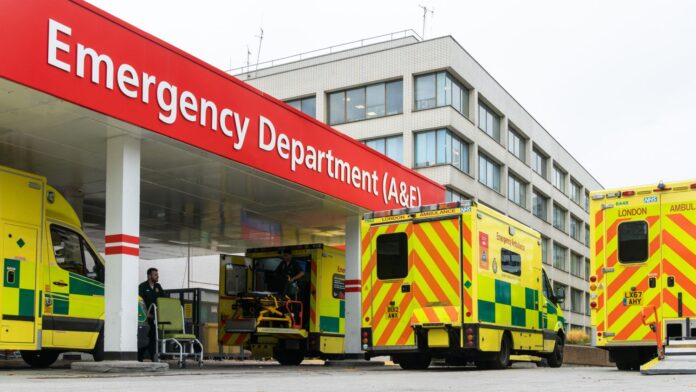Plans for 40 new hospitals by 2030 are on shaky ground, NHS leaders have said, warning that delays are pushing up costs, denting staff morale and putting the safety of patients at risk.
Nearly two in three leaders who responded said delays to the programme affected their ability to deliver safe and effective patient care, with all those facing delays reporting cost implications.
Amid the current political turmoil and just days after it was revealed that the National Audit Office will launch a review into the New Hospital Programme, our survey reveals that half of trust leaders doubt that they have been given enough funding, while almost two in five said their schemes were behind schedule. Many warned of reduced public confidence that plans will get beyond the drawing board to become reality.
One trust leader said that operating “21st century healthcare from 19th century buildings” was “increasingly unsustainable” while another said that staff were “irritated” that their work during the pandemic on plans for a new hospital “appears to have been lost”.
The survey findings underline the programme’s potential benefits if funded and delivered properly. Nearly all respondents said their schemes would improve patients’ experiences and outcomes and boost efficiency, with more than three in four saying it would help tackle treatment backlogs.
The survey found that:
Half of the trusts surveyed were not confident or not at all confident that the funding they’ve been allocated is sufficient to deliver their project.
Almost two in five hospitals have their completion date behind schedule. Of these, almost half of the projects have had their timescales publicly reset.
Of those with completion dates behind schedule, most said the delays affected their trust’s ability to deliver safe and effective patient care and one third said it affected it to a great extent.
Of those hospitals behind schedule, all reported cost implications because of the delay.
Almost all trusts strongly agreed or agreed that, if appropriately funded, their scheme will improve patient-centred care and experience, improve clinical outcomes, and enable them to increase productivity.
A large proportion strongly agreed or agreed that it will improve their capacity to meet rising demand and effectively tackle the care backlog.
Almost all trusts strongly agreed or agreed that the government should confirm the funding envelope for the New Hospital Programme beyond the current spending review period (2022/23-2024/25).
Responding to the survey, the interim chief executive of NHS Providers, Saffron Cordery, said:
“Delays nationally and mounting concern about funding mean what was billed as the biggest hospital building programme in a generation is on shaky ground.
“Hopes and expectations have been raised. Now it’s time for the government to deliver on the prime minister’s pledge.
“Trust leaders are deeply frustrated that the benefits they expected to be able to deliver for patients and their communities are increasingly in doubt, in some cases getting further out of reach with every day that goes by.
“This is about much more than bricks and mortar. The New Hospital Programme is a fantastic opportunity to rebuild the fabric of the NHS, providing badly needed renewal for acute, mental health, community and ambulance services.
“Failure to create a modern, comfortable and safe environment for patients where staff can provide first-class care reliably, effectively and efficiently is a missed opportunity which will cost the NHS dear for years to come.”







